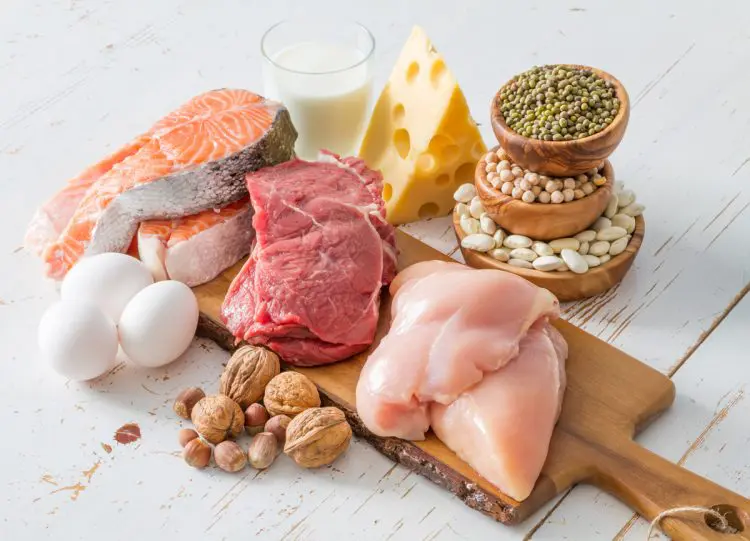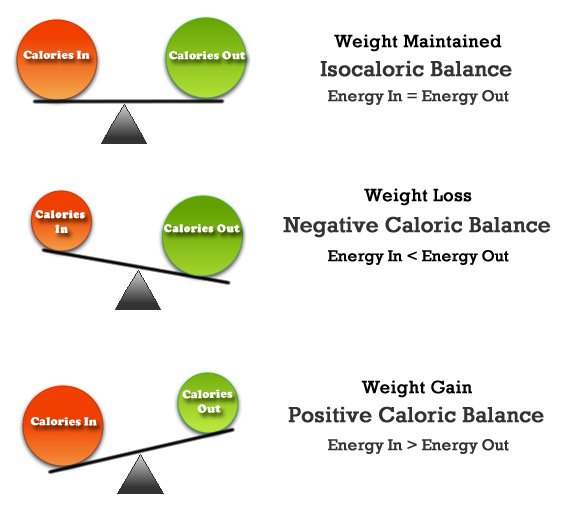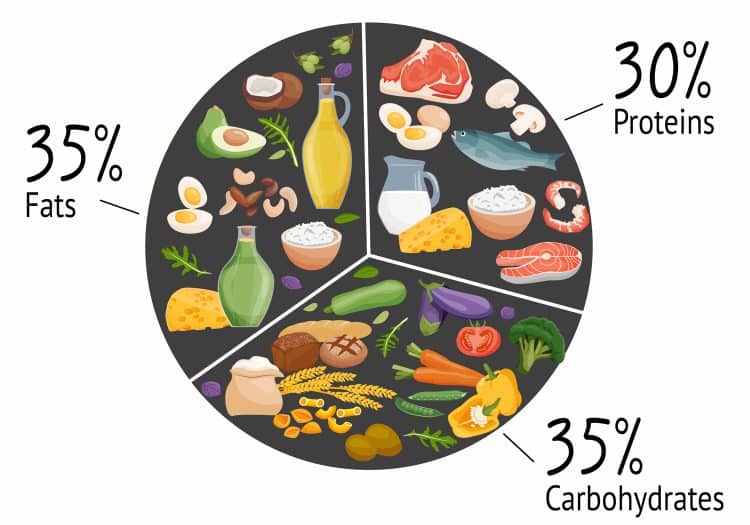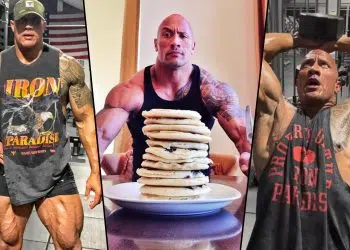I’ve been helping people lose weight and get in shape for over 30 years. During that time, I’ve worked with everyone from bodybuilders prepping for shows to new moms trying to shift their post-pregnancy baby weight.
In many cases, the most challenging part of my job has been getting my clients to forget about faddy diets, popular myths, and complex exercise programs and just focus on the basics of weight loss.
You see, according to the internet, successful weight loss requires extreme methods. However, in most cases, these approaches are unsustainable. That’s not to say that popular diets don’t work – they do.
Unfortunately, their effects only last as long as you are willing to suffer. As soon as you quit, typically after a week or two, any weight lost is quickly regained. This is why so-called yo-yo dieting is so common. Your weight goes down only to bounce back up shortly after.
So, instead of giving you another short-term fix to your weight loss woes, in this article, I’m going to outline five unbreakable rules for successful weight loss. Do these things, and weight loss is virtually guaranteed.
Rule #1 – Create an Energy Deficit
In this article, I’m going to share five unbreakable rules for weight loss. However, in reality, there is only one rule you cannot break – creating an energy deficit.
Level Up Your Fitness: Join our 💪 strong community in Fitness Volt Newsletter. Get daily inspiration, expert-backed workouts, nutrition tips, the latest in strength sports, and the support you need to reach your goals. Subscribe for free!
All the other rules I’m going to discuss will make your weight loss journey easier, but they hinge on your compliance with this first rule. Break rule #1, and none of the others will help you lose weight.
Creating an energy deficit means consuming fewer kilocalories (kcal) than you need to maintain your current weight at your current activity level. As such, this is also called creating a negative energy balance. Studies indicate this is critical for your weight loss success (1).
Your body weight comprises several components, including the weight of your internal organs, brain, skin, bones, muscles, and fluids. However, the weight most people want to lose is body fat.
Body fat is essentially stored energy, and it’s generally accepted that one pound equals 3,500 kcal. While this is not a precise measurement, it’s close enough for weight loss purposes.
Therefore, you must reduce your kilocalorie intake below maintenance levels to force your body to use fat for fuel. So, assuming you need 2,500 kcal to maintain your current weight, a 500 kcal per day deficit should result in losing one pound of fat per week (7 days x 500 kcal = 3,500/one pound).
Losing Weight Faster
You can create a more significant deficit, but in many cases, that leads to problems with hunger and low energy levels, both of which make weight loss unsustainable. Consequently, it’s generally better to lose weight slower but for longer.
That said, if you can ignore hunger and cravings, you may be able to stick to a more significant deficit and lose weight faster. However, in my experience, slow and steady is the best way to go.
Related: How to Lose 30 Pounds in 3 Months
So, how much should you eat to create an energy deficit? The answer depends on several factors, including your age, activity levels, and the rate at which you want to lose weight. The good news is that we have a personalized weight loss calculator that will crunch all the numbers for you and give you a kcal target to aim for.
Simply follow the link and plug in the values to learn how many kcal you need to eat to lose weight. Track your kcal and adjust your food intake based on your results.
Summary: Create a kcal deficit to force your body to burn fat for fuel. Consuming 500 kilocalories below maintenance per day should lead to a one-pound weight loss per week. Avoid cutting calories too aggressively, or hunger will derail your diet.
Rule #2 – Eat More Protein
My next four rules will make your weight loss journey easier, so think of them as beneficial rather than unbreakable. That said, in my experience, adhering to these guidelines will enhance your results, and faster loss will maximize motivation and consistency.
Protein is one of the three macronutrient or food groups. The others are carbohydrates and fats. In terms of kcals, the values for each macro are:
- Fat: 9 kcal per gram
- Carbohydrate: 4 kcal per gram
- Protein: 4 kcal per gram
While it may look like carbohydrates and protein are interchangeable, protein offers numerous benefits for weight loss, and eating more will enhance your results. How? Let me explain!

The Weight Loss Benefits of Protein
Firstly, protein is highly satiating. In other words, it helps you feel fuller for longer. Hunger is the enemy of any weight loss diet, and the more you can protect yourself from it, the more successful you will be.
Next, protein has a high thermic effect, meaning eating, digesting, utilizing, and storing protein uses more energy than carbohydrates and fat. As such, eating a high-protein diet increases your daily energy expenditure.
Finally, consuming protein protects your muscles from atrophy or breakdown during a restrictive diet. Losing muscle often goes hand in hand with eating less, and muscle loss will reduce your resting metabolic rate, leading to a lower daily energy expenditure.
How much protein do you need to consume to experience these benefits? Studies suggest between 1.2 and 1.6 grams of protein per kilogram of body weight is sufficient (2). However, you can determine your precise protein needs with our easy-to-use protein calculator.
It doesn’t really matter where you get your extra protein, and you can eat animal and plant-based sources. That said, here are ten great protein sources for weight loss:
- Chicken
- Turkey
- Lean beef
- Eggs
- Greek yogurt
- Fish
- Lentils
- Chickpeas
- Edamame
- Tofu
Summary: Increase your protein intake to prevent hunger, preserve muscle mass, and increase metabolism. Choose lean protein sources to avoid consuming too many fat calories. Eat protein at most meals.
Rule #3 – Increase Your Energy Expenditure
While it’s entirely possible to lose weight without exercise and physical activity, the odds of long-term success are against you. In fact, numerous studies support the idea that the combination of exercise and dietary is the best way to lose weight and keep it off (3).
Losing weight through diet alone usually means slashing your food intake, leading to hunger, low energy, and deprivation. However, increasing your energy expenditure through exercise and physical activity means you can lose weight without cutting your food intake so aggressively.
While all types of physical activity will raise your energy expenditure above baseline, some types of exercise are arguably better than others for weight loss.
Strength Training
Lifting weights helps preserve or even increase your muscle mass, maximizing your potential for burning energy at rest. As I mentioned earlier, restrictive diets often lead to muscle loss. However, challenging your muscles with exercise triggers the “use it or lose it” mechanisms that are responsible for muscle repair and growth.
Please understand that by strength training, I don’t necessarily mean bodybuilding. However, that’s perfectly fine if you like that kind of workout. Instead, strength training means anything that challenges and fatigues your muscles, including resistance band and bodyweight exercises, kettlebells, steel clubs and maces, and any other form of overload.
2-4 weekly strength training workouts are all you need to preserve or build muscle mass.
Cardio
Cardio, short for cardiovascular, is probably the most well-known form of exercise for weight loss. This makes a lot of sense, given that fat is your primary energy source during things like jogging, swimming, cycling, and rowing.
However, I’m not particularly interested in fat burning as total kcal expenditure is much more important than the source of that energy.
As such, any activity that gets you up and moving several times a week can contribute to weight loss. This includes traditional slow-paced cardio, known as LISS (low-intensity steady state), and high-intensity interval training, or HIIT.
Related: LISS vs. HIIT Cardio – Which One is Best?
Many fitness experts will tell you that HIIT is better than LISS for weight loss, and they are probably right. However, LISS is generally easier and less tiring, even if it doesn’t burn as many kcals per minute. Do either, or do both, but try to accumulate about 150 minutes of cardio per week to maximize weight loss.
NEAT
Let’s say you hit the gym and lift weights three times a week for 40 minutes and also do 150 minutes of cardio. That adds up to a reasonably impressive four and a half hours of weekly exercise.
However, as a percentage of the time available, that’s only 2.68%. In terms of your calorie expenditure, exercise really doesn’t contribute very much, which is why you can lose weight even if you don’t work out.
Energy, motivation, and time determine how much exercise you can do per week. However, simply getting up and moving your body also burns calories, and there is less of a limit to how much you can do. We call this non-exercise physical activity, or NEAT for short.
Doing more daily NEAT will have a significant impact on your daily energy expenditure, potentially accelerating weight loss.
Examples of NEAT include:
- Walking for transport or pleasure
- Cycling for transport or pleasure
- Walking your dog
- Taking the stairs instead of the elevator
- Gardening
- Taking out the trash
- Playing with your kids
- Household chores
- Home repairs and decorating
- Washing your car by hand
- Carrying groceries
Because NEAT activities are very low intensity, you should be able to accumulate several hours per day. This is especially important for people with sedentary jobs or inactive lifestyles.
Level Up Your Fitness: Join our 💪 strong community in Fitness Volt Newsletter. Get daily inspiration, expert-backed workouts, nutrition tips, the latest in strength sports, and the support you need to reach your goals. Subscribe for free!
I tell my clients to use activity trackers to monitor their NEAT. While these trackers count steps, they record most incidences of movement, and accumulating 10,000 or more “steps” per day will have a welcome impact on weight loss.
Related: How to Use Step Counting to Get Lean
Summary: Increase your energy expenditure with regular strength training, cardio, and plenty of daily non-exercise physical activity, e.g., walking. This will save you from having to slash your food intake too aggressively.
Rule #4 – Get Enough Sleep and Rest
When it comes to losing weight, most people can stick to the diet and nutrition rules. Or, at the very least, they understand their importance. However, far fewer realize that sleep and rest are equally critical and are often the reason for their lack of success.
Sleep and Weight Loss
Not getting enough sleep can have a massive impact on your ability to lose weight. This isn’t just hyperbole – it’s a scientifically proven fact (4)! Too little sleep will:
- Increase your cravings for sugary foods
- Lower your willpower to eat healthily
- Reduce your motivation to exercise
- Make you more likely to make poor nutritional choices
- Increase catabolic (muscle breakdown) hormone production
- Decrease insulin sensitivity and increase rates of fat storage
- Decrease your resting metabolism
- Delay your recovery from exercise
Most people need 7-9 hours of sleep per night but often get by on considerably less. However, just because you can do something doesn’t mean you should. Chronic sleep deprivation is widespread and could be hurting your ability to lose weight. It can also harm your health.
Invariably, getting more sleep means going to bed earlier. While this is easier said than done, an earlier bedtime usually only requires better time management and a willingness to turn off the TV and shut down your social media stream.
Related: The Importance of Sleep for Building Muscle and Losing Fat
Rest and Recovery
Eating less means less energy for exercise and everyday activities. On one hand, this is good because it forces your body to burn fat for fuel. But, on the other hand, it can leave you feeling tired. As such, while exercise and physical activity are helpful for weight loss, too much can be as problematic as too little.
Many dieters mistakenly overextend themselves physically as they slash their food intake. This “double dipping” often leads to rapid weight loss but can also come with a side-order of debilitating fatigue.
Therefore, when you eat less, it’s critical that you avoid too much overexertion. This is not the time to start training for a marathon! Instead, adopt a moderate and sustainable workout and activity program that you can do even if you aren’t feeling your usual energetic self. Trying to train like an athlete while eating like a bird is a recipe for disaster.
Summary: Pay as much attention to sleep and rest as your energy intake and exercise program. Avoid burning the weight loss candle at both ends. Doing too much will undermine your progress and may even cause you to quit.
Rule #5 – Be Consistent
The average American adult gains between 1-2 pounds per year. Of course, there are exceptions, and some adults maintain their weight while others gain significantly more. However, 1-2 pounds is considered the norm (5).
Despite weight gain usually being slow and gradual, most people try to lose that weight over a few short weeks. This helps explain the popularity of fad diets and extreme fat-burning workouts.
Unfortunately, rapid weight loss typically involves starvation diets and long, exhausting workouts, neither of which are sustainable. Push your body too hard for too long, and it’ll quit.
That’s why so many people find it hard to reach their weight loss goals; they try and achieve too much too fast. Implosion is almost inevitable. Consequently, it’s much better to aim for a lower rate of weight loss and stick with your plan for longer. This is invariably more sustainable.
In other words, small dietary interventions and regular but moderate workouts done consistently are almost always better than extreme diets and workouts done for short periods.
Think of weight loss as a marathon and not a sprint. Set off at a sustainable pace, and you’ll reach the end of your journey. In contrast, go too fast, and you won’t reach the first mile marker.
Remember, too, that you don’t have to be perfect all the time, and the occasional missed workout or cheat meal won’t stop you from losing weight. So long as you follow the rules most of the time, you will still make progress. The occasional slipup is not cause for concern, and there is certainly no need to think of one as a failure.
Summary: Be consistent and prepare for the long haul. If you cannot see yourself sticking to your diet or workout schedule for multiple months, they won’t work, and you should choose a less intense, more sustainable approach.
Effective Weight Loss – What DOESN’T Matter
Follow my rules, and I’m confident your weight loss journey will be successful. However, there are a few things that people often worry about that aren’t all that important. That’s not to say these things aren’t potentially beneficial. Still, their impact is so tiny that they don’t deserve much of your attention. Focus on the big five, and you are good to go.
Things that don’t matter much for weight loss include:
Supplements and Superfoods
The key to losing weight is your energy balance. Consume fewer kilocalories than you burn, and you will lose weight. However, a lot of people think that there are secret supplements or foods that increase your energy expenditure or burn fat. Sadly, this is not the case. Even so-called thermogenics have a very small effect.
So, don’t waste your time looking for supplements or superfoods to enhance weight loss, and don’t waste your money on any that you do find. Focus on the basics and ignore anything that sounds too good to be true. Shortcuts don’t work.
Meal Timings and Eating Schedule
Should you eat one meal a day, i.e., intermittent fasting, or six meals a day, a.k.a. grazing? While there are advantages to both eating schedules, it probably doesn’t matter all that much. In the same way, it doesn’t matter if you get paid daily, weekly, or monthly; your annual income is identical.
So, don’t get strung out if you prefer one approach over another, even if you’ve been told that, for example, fasting is better for weight loss. Remember unbreakable rule #1 – an energy deficit is the most critical consideration for successful weight loss.
Type of Workout
Should you walk, run, sprint, or jump your way to weight loss? Is swimming better than cycling? Are freeweights better than resistance machines? Should you do squats or lunges? So many decisions!
The reality is that the minutia of your workouts doesn’t really matter. Provided you are physically active to increase your energy expenditure, your body will burn fat. In many ways, this is good news because it frees you to choose the workout you enjoy the most. Provided you do it consistently, whatever you do will work.
That’s not to say that some workouts are better for burning kcals than others – they are. However, the differences are small and unimportant compared to consistency.
Type of Diet
Just as your workout doesn’t really matter, neither does your preferred diet. So long as you have an energy deficit, it doesn’t matter if you go low-carb, low-fat, or just eat smaller or fewer meals. However, your chosen approach should be sustainable and enjoyable. You’ll soon break your diet if it’s inconvenient or you don’t like the foods you have to eat.
Precision Calorie and Macro Counting
Kilocalorie and macro tracking are not a precise science. There are many variables at play, not least the view that kilocalories from one type of food are not the same as those from another.
And yet, despite this, many people try to be overly precise with their food tracking and intake, worrying over every gram and kcal. This is not only unnecessary but can also be stressful and may make tracking unsustainable.
So, don’t get weighed down by minor details. It’s okay to round up, round down, and estimate. So long as you create a sustainable energy deficit, the precise numbers don’t matter.
Fasted Vs. Non-Fasted Workouts
While fasted cardio may burn more fat than exercising after a meal, the differences are pretty small. Similarly, you may find that you are unable to exercise as hard or as long when fasted, so any additional benefits are lost. Personally, I tend to feel hungrier after fasted exercise and end up eating more.
So, don’t feel bad that you don’t want to get up early to exercise before breakfast. Not only would doing so offer minimal benefits, but it might even make your workout less productive. Work out at the time that suits you best.
Detoxes/Cleanses
Are you struggling to lose weight? Whatever the problem, I can categorically tell you it’s not because your body is “clogged up” with toxins! Your body has an excellent filtration system that excretes toxins throughout the day. You don’t need to follow a special diet or take cleansing supplements to speed up the process.
Most so-called detoxes are just very low-calorie diets, which are unsustainable and leave you feeling tired and weak. Just consume plenty of water, fruit, and vegetables, and your body will continue detoxifying itself without unnecessary interventions.
In 99 out of 100 cases, if you aren’t losing weight, it’s because your kcal intake is greater than your expenditure. In other words, you’re eating too much!
Summary: Don’t major in the minors by worrying about things that don’t matter, like supplements or meal timings. Instead, focus on the things that deliver the most bang for your buck, i.e., the five unbreakable rules of effective weight loss.
Closing Thoughts
According to the internet and numerous so-called nutrition experts and fitness influencers, losing weight is a complex subject akin to rocket science or brain surgery.
However, in my 30+ years of experience as a personal trainer, I’ve found weight loss to be pretty straightforward. That said, I also admit that straightforward doesn’t always mean easy!
Eating less and moving more are the foundations of successful weight loss. Still, it’s all too easy to get bogged down in the small details and overwhelmed by all the superfluous information surrounding this hot topic.
So, it’s time to free yourself from information overload and focus on my five unbreakable rules of effective weight loss. Do the things outlined in this article, and you will lose weight. Yes, there are other details you could consider, but in my experience, they don’t matter all that much.
Put your time and energy into my five unbreakable rules, and you’ll soon be on your way to successful weight loss.
References:
- Strasser B, Spreitzer A, Haber P. Fat loss depends on energy deficit only, independently of the method for weight loss. Ann Nutr Metab. 2007;51(5):428-32. doi: 10.1159/000111162. Epub 2007 Nov 20. PMID: 18025815.
- Leidy HJ, Clifton PM, Astrup A, Wycherley TP, Westerterp-Plantenga MS, Luscombe-Marsh ND, Woods SC, Mattes RD. The role of protein in weight loss and maintenance. Am J Clin Nutr. 2015 Jun;101(6):1320S-1329S. doi: 10.3945/ajcn.114.084038. Epub 2015 Apr 29. PMID: 25926512.
- Johns DJ, Hartmann-Boyce J, Jebb SA, Aveyard P; Behavioural Weight Management Review Group. Diet or exercise interventions vs combined behavioral weight management programs: a systematic review and meta-analysis of direct comparisons. J Acad Nutr Diet. 2014 Oct;114(10):1557-68. doi: 10.1016/j.jand.2014.07.005. PMID: 25257365; PMCID: PMC4180002.
- Chaput JP, Després JP, Bouchard C, Tremblay A. The association between sleep duration and weight gain in adults: a 6-year prospective study from the Quebec Family Study. Sleep. 2008 Apr;31(4):517-23. doi: 10.1093/sleep/31.4.517. PMID: 18457239; PMCID: PMC2279744.
- Hutfless S, Maruthur NM, Wilson RF, et al. Strategies to Prevent Weight Gain Among Adults [Internet]. Rockville (MD): Agency for Healthcare Research and Quality (US); 2013 Mar. (Comparative Effectiveness Reviews, No. 97.) Available from: https://www.ncbi.nlm.nih.gov/books/NBK133218/

















